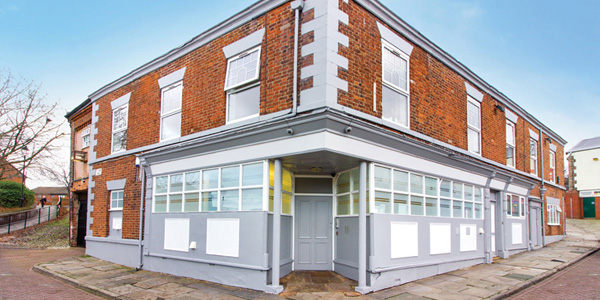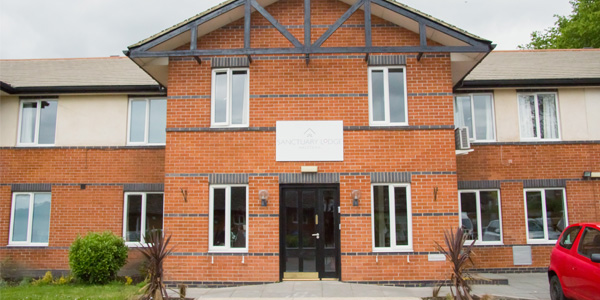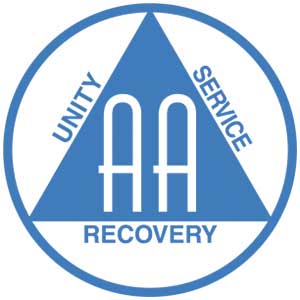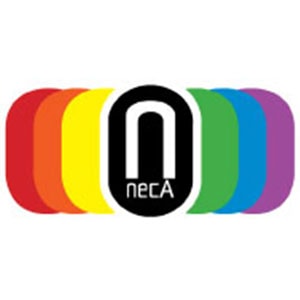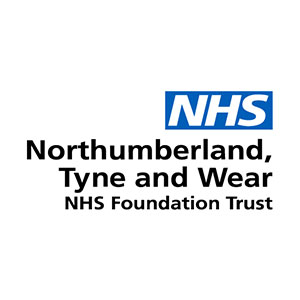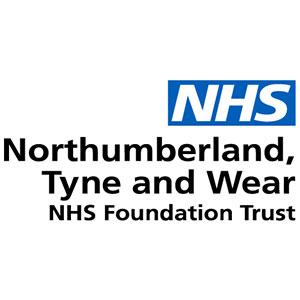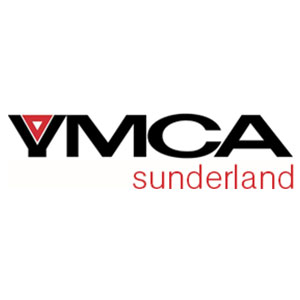Alcohol & Drug Rehab In Sunderland
For all its community spirit and renowned determination in the face of adversity, Sunderland is struggling beneath the burden of an increasingly profound addiction crisis, with alcohol, illegal drugs – a problem worsening by the day thanks to the arrival of new psychoactive substances (NPS) alongside well-established hard drugs such as heroin and crack cocaine – and prescription medicine all taking a tragic toll on Sunderland residents.
Nevertheless, it is vital not to give up hope – because in recent years a number of new high-quality addiction treatment facilities have opened across the UK which are transforming – and saving – lives every day. If you or someone you love are battling addiction in or near Sunderland, such help could mean the difference between a healthy, happy and successful future and no future at all: read on to discover how rehab is making that difference…
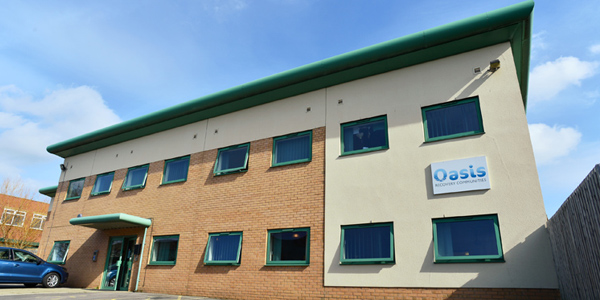
Built in 2009, Oasis Bradford was originally commissioned by the Department…
- Private
- 24/7 Nursing
- 24/7 nursing
- Residential
Featured Rehabs
Oasis Runcorn is quite unique detox and rehab unit in offering two treatmen…
Sanctuary Lodge is a state of the art detox and rehabilitation facility, se…
Liberty House Clinic is a fully furbished detox and rehabilitation facility…
-
- Free
- Group Setting
- 12 Step
-
- Free
- Group Setting
- 12 Step
-
- Free
- Group Setting
- 12 Step
-
- Free
- Outpatient
- 12 Step
-
- Free
- Counselling
- Outpatient
- Support
-
- Free
- Counselling
- Outpatient
- Support
-
- Free
- Counselling
- Outpatient
- Support
- Load More
Drug & Alcohol Rehab Services in Tyne And Wear
- A
- B
- C
- D
- E
- F
- G
- H
- I
- J
- K
- L
- M
- N
- O
- P
- Q
- R
- S
- T
- U
- V
- W
- X
- Y
- Z
What Is Rehab?

Residential rehabilitation – or “rehab” – is the term for the process by which an addict gets treatment for their addiction at a dedicated facility, and also describes the facility itself. At rehab, a patient is able to undergo detoxification (“detox”) and withdrawal with medical assistance – often in the form of pharmaceutical as well as therapeutic support – and engage in therapy aimed at discovering and addressing the root causes of their addiction, in a secure, peaceful, pleasant and (crucially) confidential environment perfect for the necessary introspection and contemplation.
There is a general consensus that rehab is the most effective approach to the treatment of addiction, in terms of its being the most likely to result in permanent abstinence on the part of the erstwhile addict. Its ability to address both short- (physical dependency countered by detoxification) and long-term (psychological addiction, tackled by therapy) challenges in one holistic treatment programme conducted under one roof is unparalleled, and indeed in mainstream culture “rehab” has become synonymous with addiction treatment.
How can I get Someone into Rehab?
Addiction is a devastating illness that ruins lives, and the sooner an addict can take the first crucial step and reach out for help, the sooner they can be on their way to a holistic treatment program at rehab and, subsequently, to a life free of substances of abuse. The NHS provides an array of addiction treatment services, including rehab; however, places are extremely limited and waiting times lengthy at best – especially in areas of high demand such as Sunderland.
If you or a loved one desperately need the professional help which rehab can provide, you may not wish to waste another second before exploring some of the private options available to you: call 0800 024 1455 now to discuss next steps.
The Advantages of Private Rehab
The programmes offered by rehabs vary from one to another (as do the level and type of facilities available. However, they all have in common the provision of a secluded, secure, attractive environment in which healing can take place far from the temptations of everyday life and from substances of abuse.
Upon arrival a patient is assessed to give medical professionals an idea of their condition and the severity of their addiction. Following this assessment the patient undergoes a supervised detox (during which, relevant medication may be administered to ameliorate the worst effects of withdrawal). After detox and withdrawal are complete, patients move into a period of therapy aimed at revealing what led them into addiction originally and at ensuring they are fully psychologically equipped to resist the temptation to get back upon that path to destruction.
Bespoke nutritional and physical fitness plans will be administered, while patients will be able to take advantage of various other facilities (differing from one rehab to the next). Patients will usually be offered free aftercare for up to a year upon leaving rehab, in the knowledge that recovery is not achieved simply by leaving the facility after completing the treatment programme, but is a lifelong process requiring dedication and commitment.
What Does Rehab Cost Near Sunderland?
The cost of private rehab in or near Sunderland can vary significantly by treatment programme, and depending on which of a variety of optional extras are selected. As a rough guide, standard costs range from between £5,500 and £11,000 per month, though the cheapest rehab treatment can start from as little as £834 per week. For more details, call 0800 804 4755.
NHS Addiction Treatment Options Near Sunderland
Not everyone will find rehab to be an appropriate solution for them at any given time, perhaps for reasons of cost or because they are unable to free up the time needed away from family and professional commitments. If you are one of these people, yet you are desperate to get help in the fight against your addiction, do not despair: there are various NHS and charity resources in Sunderland and across Tyne & Wear which may be of use. Contact your GP to find out more about these, and to discuss which might be available to you.
Advantages of NHS Treatment
The primary advantage of NHS treatment is, of course, financial: private rehab comes at a cost which may be offputting to some addicts (although, set against the costs – financial and otherwise – of addiction, this investment may be comparatively minor) and NHS options are free at the point of use.
They are also very accessible geographically in that the NHS operates in every corner of the country (though waiting times vary and may be substantial). Furthermore, the NHS offers a high standard of service – though quality does vary by location.
Addiction Support Groups
oneliness. Support group attendees can come from all walks of life, brought together by their shared experience of addiction and recovery; typically, attendance at support groups is free and the only qualification for participation is a commitment to leading a life free of substance abuse.
The most famous support group organisation, and the one on which most others are modelled, is Alcoholics Anonymous (AA) which was founded in 1935 and runs on a 12-step programme of personal and spiritual development, with one of the steps being a recognition that a higher power – such as God – can assist with an alcoholic’s recovery. Narcotics Anonymous (NA), founded in 1953 and based directly upon the AA model, is the second-largest support group organisation worldwide and caters to recovering drug addicts specifically. In a similar vein, but supporting those recovering from addictions to specific substances, are Cocaine Anonymous (CA), Heroin Anonymous (HA), Marijuana Anonymous (MA) and Crystal Meth Anonymous (CMA), all of which operate 12-step programmes. There are also support groups such as Al-Anon and Nar-Anon assisting the families and friends of addicts which typically hold meetings alongside those for the addicts themselves.
Support groups typically meet weekly, though each local chapter is managed independently and meeting times and venues are subject to change. To find information on meetings in or near Sunderland, see the relevant websites:
Alcoholics Anonymous
, Narcotics Anonymous; Cocaine Anonymous; Heroin Anonymous; Marijuana Anonymous; Crystal Meth Anonymous
Types of Counselling

A form of help which can be particularly useful for people with very busy schedules, individual counselling may be engaged in following the completion of a treatment programme at rehab, or potentially prior to engaging in such a programme, as a way of managing an addiction on a temporary basis.
Private addiction counsellors are similar to regular psychotherapists (though obviously with a more specific focus) in that they can be seen by private appointment on an ongoing – usually weekly – basis and offer a broad variety of different therapy models. Private counsellors can be found throughout the country and usually charge per appointment.
How to Get to Oasis Recovery from Sunderland
Oasis Recovery is a unique and pioneering detox and rehab centre located in the heart of Bradford in a quiet secure location perfect for those struggling with addiction. Spacious and tranquil, Oasis Recovery’s highly skilled medical and support staff, and its excellent infrastructure, mean it can facilitate all manner of medical detoxes, including complex detoxes and those who require a higher intensity of medical care. Oasis Recovery boasts 19 en suite bedrooms – furnished to a very high standard – with walk-in showers, disabled facilities, large communal living areas, well-equipped treatment rooms, outside courtyard, and holistic spa jacuzzi. The medical team provide close monitoring of all patients throughout the day and night, while patients can also undergo structure therapeutic treatment alongside any medical detox which may be necessary.
To get to Bradford from Sunderland, take the A183 to the A1018 and stay on this road to the A19; drive all the way down to the A168 and then merge onto the A1(M) at the ramp to Wetherby. Keep going as the A1(M) becomes the M1; at junction 42 join the M62 towards Manchester/Bradford. At junction 26, take the M606 exit and stay on the motorway until junction 3, at which point take the A6177 and then the A641/Manchester Road; then follow signs to the city centre.
Oasis Recovery
21a Bolling Road
Bradford
BD4 7BG


